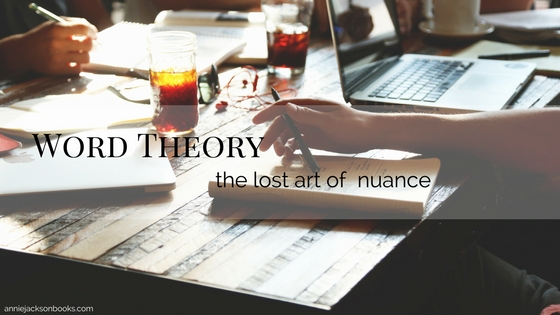Timothy Gray wrote an article in Variety today about bloggers and the need to distinguish between them. I was with him until about 3/4 of the way in when he started talking about words.
The average English-speaker knows 10,000 to 20,000 words. And everyone has been forced to expand their vocabularies due to the massive changes in the 21st century — possibly greater than in any other time in modern history.
The problem is, there may be more words expanding the breadth of our vocabulary. But we’re sacrificing the depth of our vocabulary. We may be creating words like podcast and webisode, but we’re losing debonair and esoteric. Who uses those kind of words anymore or, better yet, who hears them without having to look them up?
I think there’s two categories of words that are expanding our vocabularies. Words we have to invent for technology (which I think there’s no harm in) and words we invent because we can’t be prevailed upon to form an entire sentence.
ebook and iPod and megapixel are useful words to describe and relate to our evolving world; to try to make sense of it all.
But our technology is also giving us every reason to use shorter and shorter words, if we bother to use words at all. LOL is the most over used string of letters because we don’t have the time or energy to say, “That’s funny,” “I’m laughing,” “I enjoyed that comment” or to form a similar rational and fully developed thought. OMG would be next on the list.
Also, if a word has more than two syllables we try to find a way to make it shorter and easier. Flexible becomes flexi. Sometimes two words is beyond our energy or time so we contract and create words like frenemy.
And in losing the depth of our vocabulary we lose nuance as well. Because there is a difference between cavalier and glib and insouciant. It’s subtle but we should be able to use the right word at the right time without having to check dictionary.com on our smartphones.
Madeleine L’Engle, in Walking on Water said that our ability to form and understand complex and intangible ideas is related to our use of language. That when our vocabulary is diminished we curtail our ability to understand justice or the difference between freedom and liberty. That when dictators come into power they burn books because they don’t want people to read or learn or think for themselves. And if there is any truth to that, we are the makers of our own destruction.
I don’t disagree with Timothy Gray about creating terms to distinguish different types of bloggers, but I think if you’re going to explore the new words we’re creating and redefining you could also touch on all the words we’re letting fall by the wayside.
Though, there was a bit at the end I found kind of ridiculous.
We have learned such terms as barista, jihad, frenemy, staycation, transfat, stem cell, carbon footprint, e-coli, ebola, ethanol and smackdown.
Really you’re going to equate a word like jihad that has been around since 1869 with something like staycation that was completely a pop culture invention in 2005? Also, no one should ever use the word “staycation.” It’s not that hard to say, “I’m staying home during my time off.”
